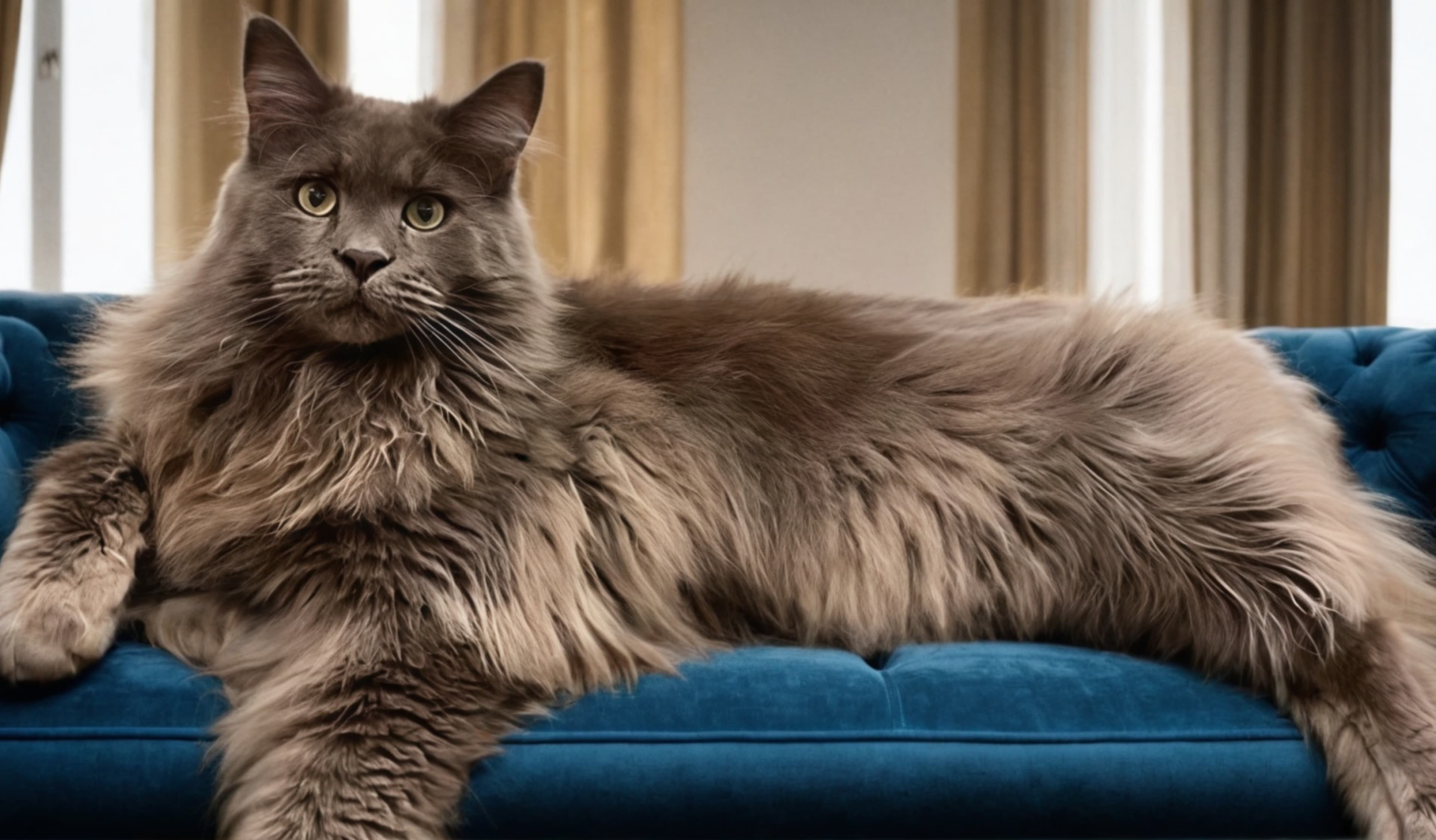
Frequently Asked Questions
Everything You Need to Know About Maine Coons
Cost and Investment
The price of a Maine Coon varies depending on quality and traits. Kittens typically range from $4,000 to $8,000, with factors like pedigree, health, size, and coat rarity influencing the price.
Maine Coons are loving, intelligent, low-maintenance cats that make excellent companions. Their unique personalities, majestic appearance, and long lifespan contribute to their value.
Personality and Temperament
Maine Coons are friendly, curious, loyal, and intelligent. They love to explore and interact with their families and are tolerant and patient, making them great companions.
No, Maine Coons typically bond with multiple family members. They are social and enjoy interacting with everyone in their household.
Maine Coons can experience separation anxiety if left alone for long periods. Providing toys, attention, and a stimulating environment can help reduce their stress.
Physical Characteristics
Maine Coons evolved in cold climates, which led to their thick coat and large frame. Their hearty appetite and strong bone structure also contribute to their size.
Yes, Maine Coons are the largest domestic cat breed. Males weigh between 15–35 pounds, while females weigh 12–30 pounds.
Yes, Maine Coons shed significantly due to their thick coat. Regular brushing and occasional baths can help manage shedding.
The Savannah Cat, a hybrid breed, can be taller than a Maine Coon but typically has a slimmer frame.
Care and Maintenance
Maine Coons should be brushed at least once a week to prevent tangling. During shedding seasons, more frequent brushing is recommended.
Maine Coons should be bathed every 1–2 months unless they get dirty. Over-bathing can strip natural oils from their coat.
Many Maine Coons enjoy water and may play in shallow water or explore larger bodies under supervision.
History and Origin
Maine Coons are thought to result from a mix of Norwegian Forest Cats and domestic breeds brought to America by settlers. Their traits evolved naturally in the cold New England climate.
No, despite their wild appearance, Maine Coons are fully domestic cats. Their rugged features evolved through adaptation, not from wild ancestry.
Health and Longevity
Maine Coons typically live 12–15 years or more, making them long-lived compared to many other breeds.
Common health concerns include hip dysplasia, heart defects (like hypertrophic cardiomyopathy), and polycystic kidney disease. Regular checkups and preventive care can help maintain their health.
Social Behavior
Yes, Maine Coons are friendly and often get along well with dogs, especially when raised together.
Most Maine Coons enjoy being held and cuddled, though their tolerance for being carried may vary based on individual temperament.
Maine Coons can be left alone for short periods, but they are social animals and thrive with regular interaction and stimulation.
Miscellaneous
Yes, Maine Coons are clean and intelligent cats that readily use a litter box. Keeping the box clean encourages consistent use.
Yes, Maine Coons purr loudly to express contentment and relaxation. They may also purr as a self-soothing mechanism.
While not typically aggressive, Maine Coons can be protective of their family if they sense danger. However, they are not a substitute for a guard animal.
Maine Coons are generally well-behaved, but boredom can lead to destructive behavior. Providing toys and mental stimulation helps prevent this.